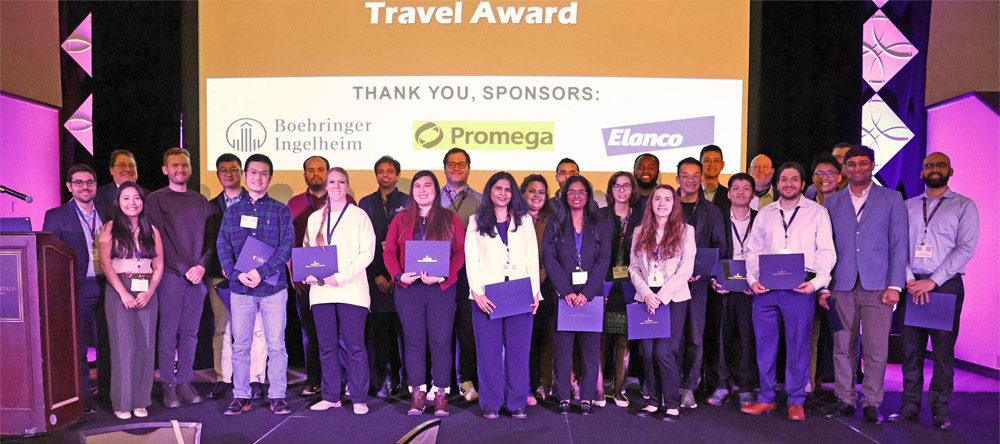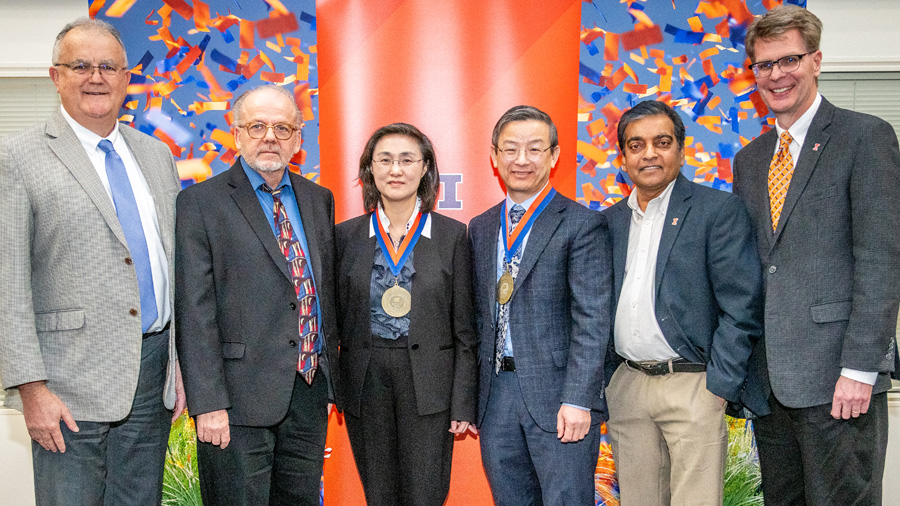Casey Lindenfeld has a lifelong interest in science and math, which led her to begin her college journey as an engineering major. However, the Texas native ended up graduating from Texas A&M University with a bachelor’s degree in biology.
“I have always loved solving puzzles,” says Dr. Lindenfeld. “Eventually, I realized that veterinary medicine encompassed all my interests.”

When it came time to apply to veterinary programs, she wanted to find an out-of-state school with a well-rounded student body and unique programs. The University of Illinois was just what Dr. Lindenfeld was looking for.
During her first two years in the veterinary program, she learned a lot from adjusting to a new academic environment in a state where she had no prior connections. She enhanced her ability to manage time effectively and to memorize vast amounts of information. She also refined her study techniques.
These foundational skills laid the groundwork for navigating the heightened academic demands in her third and fourth years.
“Each year came with its own set of challenges,” she recalls, “and overcoming every challenge allowed me to grow as a student and person.”
Throughout her first three years in the program, Dr. Lindenfeld was a student worker in the Office of Public Engagement. In that role, she contributed in numerous ways, including working at the Illinois State Fair to engage visitors to the 4-H exhibition in activities related to veterinary medicine.
Learning and Leading
Dr. Lindenfeld learned a lot from the hands-on learning experiences integrated into the curriculum at the University of Illinois. Additionally, the support provided by faculty and her peers was central to her success.
“Dr. Tony Cappa, Zandra, and the rest of the junior surgery team were so helpful in alleviating the stress associated with learning surgical procedures,” she says. “They always had a calm and reassuring attitude.”
Dr. Lindenfeld found a sense of belonging and support at the college through involvement in the Women’s Veterinary Leadership Development Initiative. “This organization is dedicated to fostering communication and leadership skills and prioritizes personal growth and inclusivity by actively engaging all members,” she says. Dr. Lindenfeld served on its executive board.
After making the most of her four years at the College of Veterinary Medicine, Dr. Lindenfeld is ready to embark on her journey of helping people and animals.
“I’ve accepted a position at a primary care animal hospital for cats and dogs in the Chicago suburbs,” she notes. She plans to gain experience in surgery and dentistry and establish connections with her clients and their pets.
“Veterinary medicine is the cornerstone of all my passions,” she says. Moving forward, she embraces a commitment to compassion, dedication, and continuous learning in her field.
By Kara Mangione




